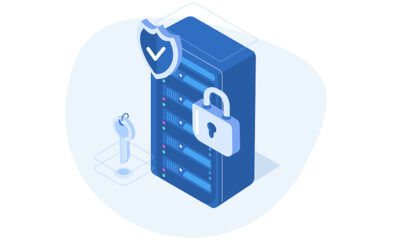Do the new Apple App Store rules mean the end of white label event apps? There will definitely be a lot of changes for event and trade fair managers!
No mobile, no chance
The spread of smartphones is still growing. Forecasts project that in Germany in 2018 over 70% of the population will use a smartphone, and in countries like South Korea it is already almost 90%. An event or trade fair organizer can therefore not do without having a mobile strategy to reach their customers.
Particularly at events, interaction via smartphones and mobile end devices, offering information about speakers, content, exhibitors via mobile end devices is simply indispensable. As well as responsive web pages, many count on event apps that conference, trade fair and event participants need to download from the respective app stores.
What is Apple doing?
At the start of the app economy, such apps were individually programmed at great cost, typically with 5-figure budgets to do so.
Then came white label event apps, that allowed event managers to design their own apps based on a template. This reduced event app costs considerably and the boom began for such providers.
Apple however doesn’t like white label event apps at all. Why?
Cupertino would like to increase the quality of App Store offerings and therefore no longer want to publish apps that don’t have a considerable added value over other apps, with particular focus on app clones or app spam – so-called me-too apps that are only focused on generating a quick buck.
Unfortunately, white label event apps also fall into this category, as, apart from their branding, the apps are identical on a functionality level.
There is therefore a risk that event organizers that have otherwise worked with white label solutions won’t be able to do so in the future.
A big issue for you as an event organizer?
Good question!
Here at Converve, we have been of the opinion for a while now that event apps only then make sense is they offer a clear added value for participants. Nobody wants to stuff their smartphone full of countless individual event apps for every conference or trade fair they are visiting!
Current studies have found out that the average smartphone user uses 30 different apps per month, 10 of which daily. It’s therefore a real challenge for an event organizer to make the cut.
Research shows that the download and (more importantly) usage rates of native event apps is increasingly falling and in the meantime, is around 20-30%, meaning that only 20-30% of event visitors actually use the offered event app. IF you consider how much effort is spent on planning, creation and marketing of such an event app, the ROI is indeed questionable.
More important from our point of view is to offer a mobile-optimized (responsive) version of your web page for mobile devices. This is also what Google thinks too, with mobile-optimized websites ranking higher than non-responsive websites.
Which way for event app providers now?
In response to the changed App Store regulations, event app providers are now trying to design a universal event app, incorporating all possible events into one app.
The idea is that users download just one app, regardless of whether they want to go to a craft show, business conference for the pharmaceutical industry or IT exhibition.
It kind of reminds you of Lord of The Rings – ‘one app to rule them all, one app to find them, one app to bring them all and in the darkness bind them…’!
Apart from the fact that it’s going to be interesting if and which universal app prevails, there is the question how much sense one universal app for all branches, target audiences, topics and event formats actually makes.
One size fits all? We’re actually heading towards 1:1 marketing, so the exact opposite.
What can event organizers do?
- First of all – keep calm. If you already have a white label app in the App Store that is updated every year, this can continue to be offered.
- But then – analyze precisely is your own website is mobile-optimized and whether all features and functionalities are mobile user-friendly. There is a Mobile Friendly Test by Google, that helps you find out how the search engine giant sees your site.
- If you’re planning to launch a new white label app – leave it! The signals from Apple are clear and it doesn’t make much sense anymore.
By the way: if you use the Converve Platform for matchmaking at your event, you can breathe easy! The platform is optimized for mobile devices and we are constantly working on a seamless user experience.
Feel free to contact us if you’re not sure whether you are following the right mobile strategy at your event. We are always at your service to exchange ideas.



